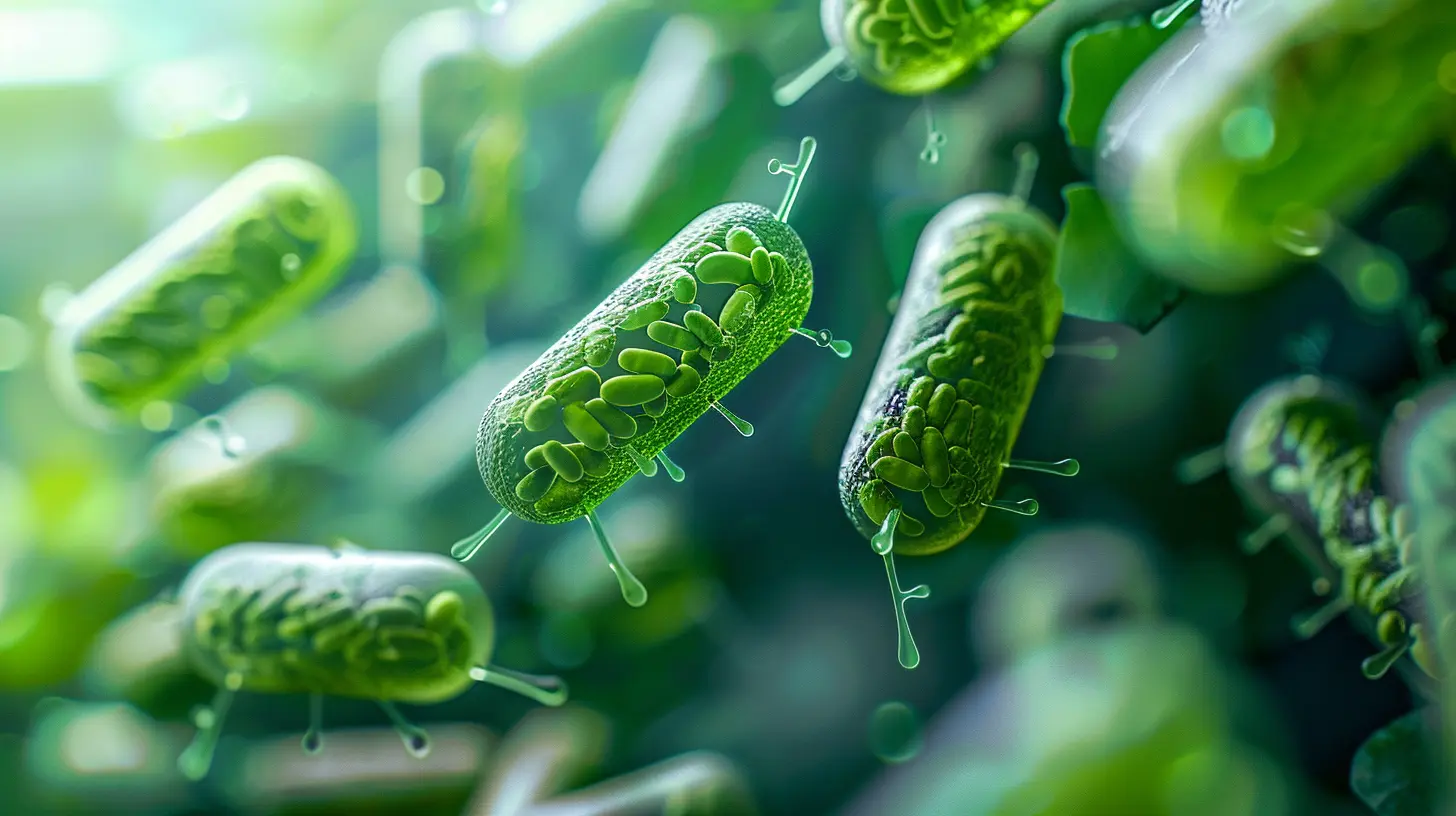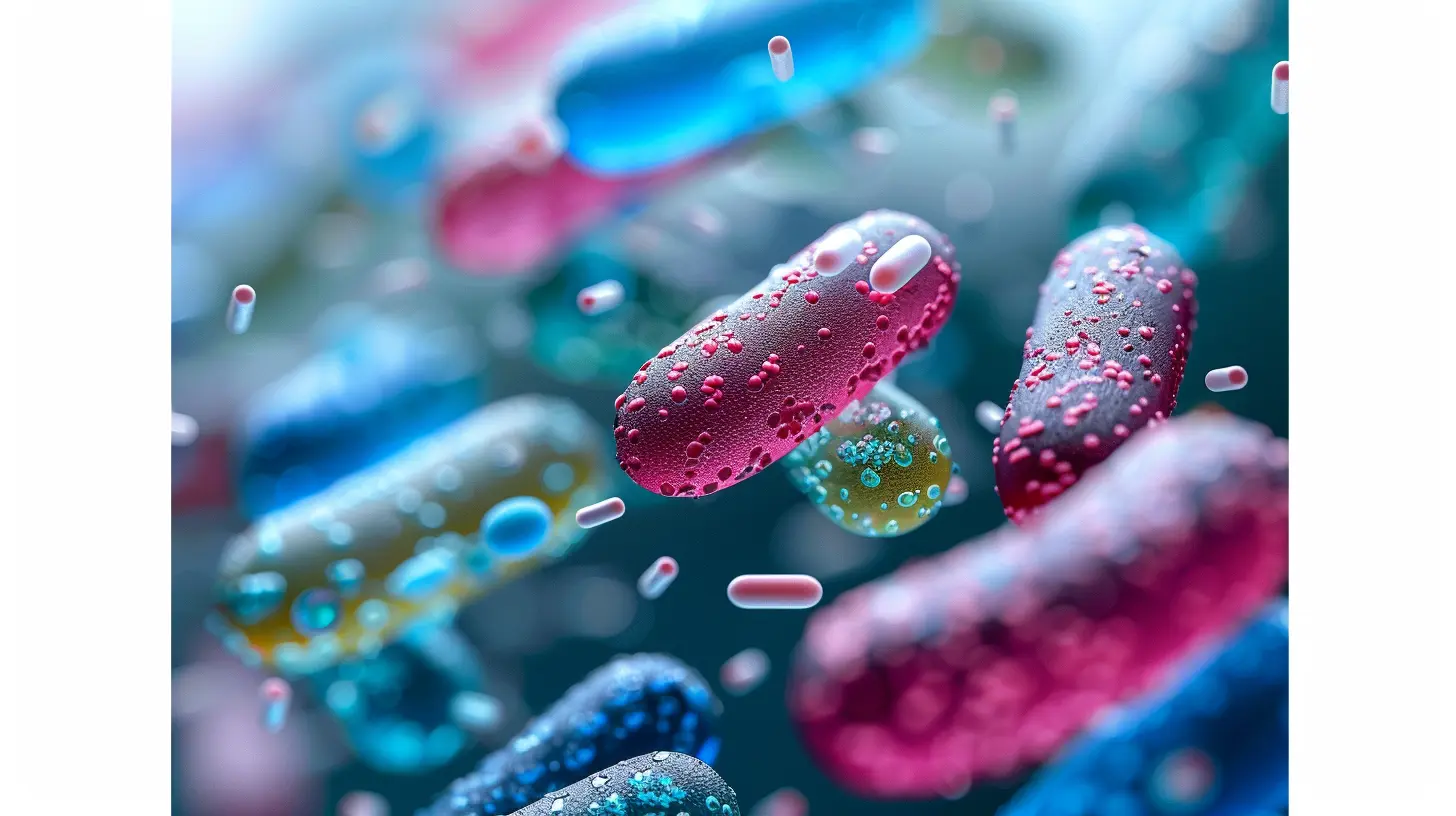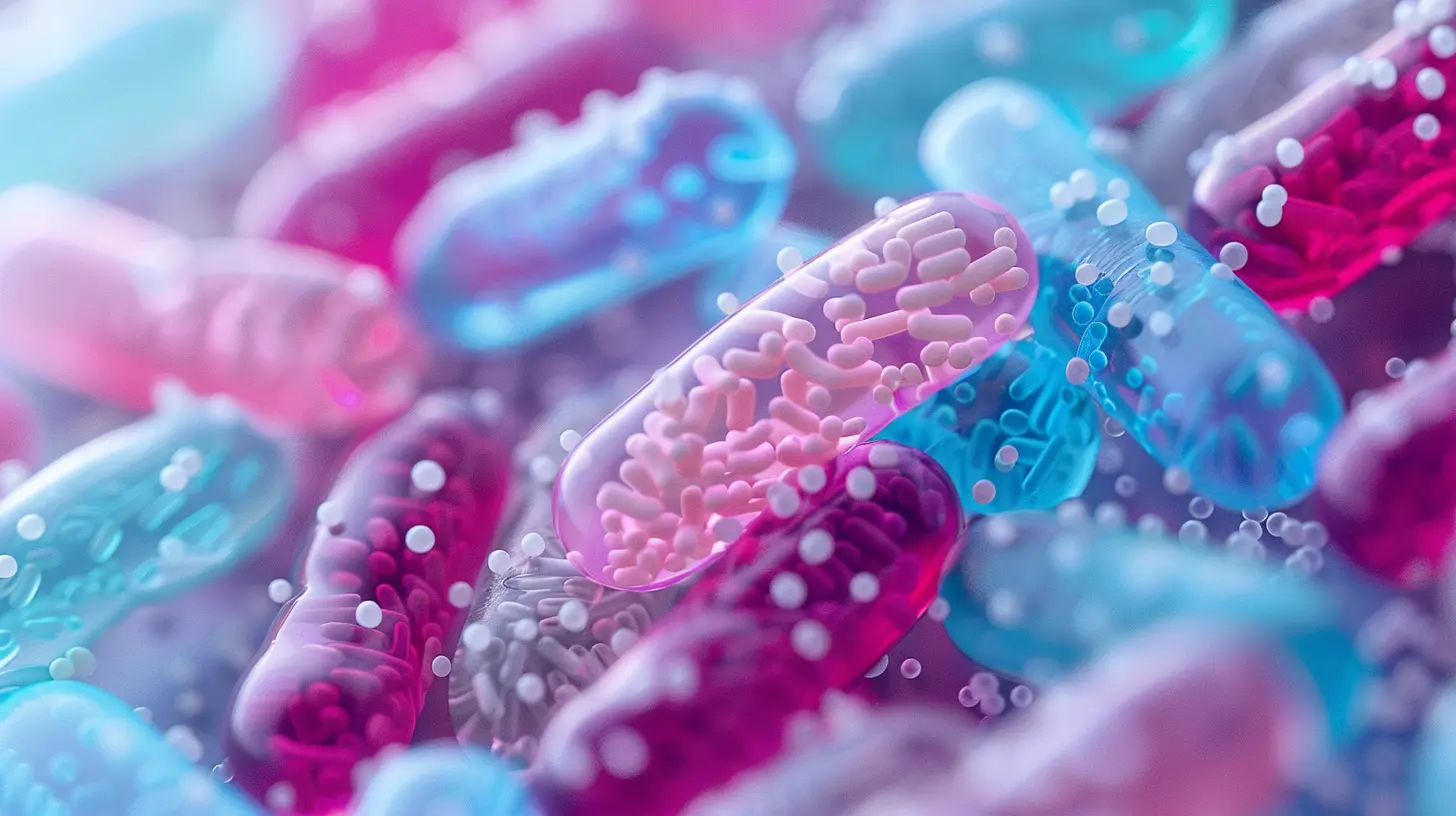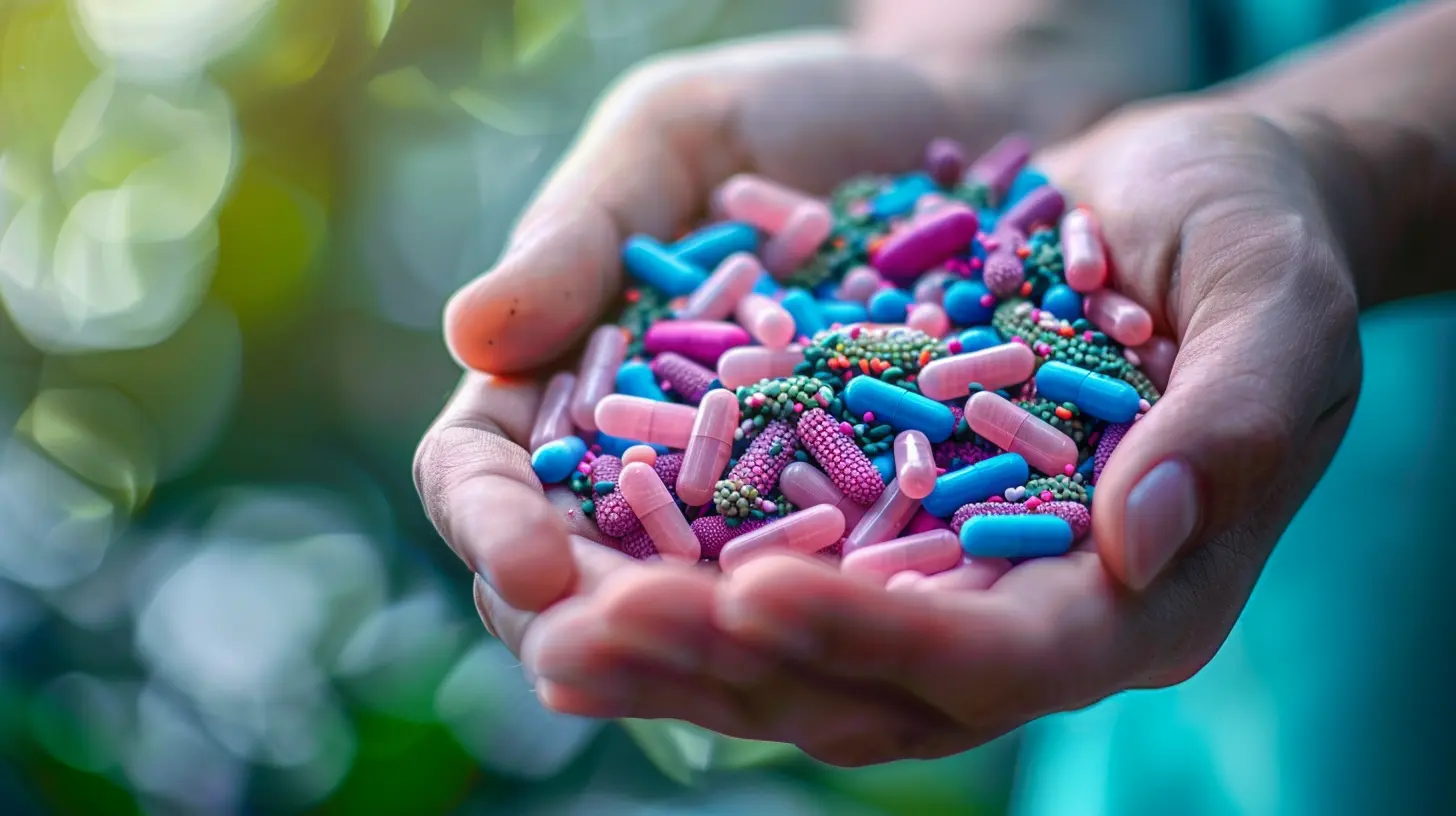Healing Leaky Gut Syndrome with Probiotics: What You Need to Know
29 May 2025
Introduction
Ever feel like your digestive system is waging war against you? Bloating, stomach pain, food sensitivities—these could all be signs of a leaky gut. This sneaky condition lets toxins and undigested food particles slip into your bloodstream, triggering inflammation and a host of health issues.
The good news? Your gut has a powerful ally—probiotics. These tiny, friendly bacteria can help repair and restore your gut lining, bringing balance back to your digestive health. But how do they work, and which ones are best for healing leaky gut? Let's dive in.

What Is Leaky Gut Syndrome?
Your gut isn't just there to digest food—it’s also a crucial barrier between your body and the outside world. The walls of your intestines contain tiny gaps called tight junctions. These regulate what gets absorbed into your bloodstream and what stays out.With leaky gut syndrome (scientifically known as intestinal permeability), those tight junctions become loose. This allows harmful substances like bacteria, toxins, and undigested food particles to slip into your bloodstream, triggering an immune response. The result? Chronic inflammation, digestive distress, food sensitivities, and even autoimmune conditions.
Symptoms of Leaky Gut
Not sure if your gut is in trouble? Here are some common symptoms:- Digestive Issues – Bloating, gas, diarrhea, or constipation
- Food Sensitivities – Especially to gluten, dairy, or processed foods
- Brain Fog – Trouble concentrating, memory issues
- Chronic Fatigue – Feeling exhausted, even after rest
- Skin Problems – Acne, eczema, or rashes
- Autoimmune Disorders – Conditions like rheumatoid arthritis or Hashimoto’s
If any of these sound familiar, your gut health may need attention.

How Probiotics Help Heal Leaky Gut
Now, where do probiotics come in? These beneficial bacteria line your gut and act like microscopic bodyguards, keeping harmful bacteria in check and strengthening the gut barrier. Here’s how they work their magic:1. Restoring Gut Balance
When harmful bacteria outnumber the good ones, your gut microbiome falls out of balance—a condition called dysbiosis. Probiotics replenish friendly bacteria, crowding out the bad guys and restoring harmony.2. Strengthening the Gut Lining
Certain probiotic strains help rebuild and tighten those weakened tight junctions. This means fewer toxins and unwanted particles slipping into your bloodstream.3. Reducing Inflammation
A leaky gut often leads to chronic inflammation. Probiotics produce anti-inflammatory compounds, helping to soothe your gut and reduce immune system overreactions.4. Supporting Nutrient Absorption
A damaged gut struggles to absorb essential nutrients. Probiotics improve digestion by breaking down food properly, ensuring your body gets the vitamins and minerals it needs.
Best Probiotic Strains for Leaky Gut
Not all probiotics are created equal. Some strains are particularly powerful when it comes to healing leaky gut. Here are the top ones to look for:1. Lactobacillus rhamnosus
- Strengthens the intestinal lining- Reduces gut inflammation
- Supports immune function
2. Lactobacillus plantarum
- Helps seal a leaky gut- Produces anti-inflammatory compounds
- Improves digestion and reduces bloating
3. Bifidobacterium breve
- Enhances nutrient absorption- Supports a healthy gut microbiome
- Fights harmful bacteria
4. Saccharomyces boulardii (A probiotic yeast)
- Targets harmful microbes- Helps prevent diarrhea
- Repairs the gut lining
5. Bifidobacterium longum
- Reduces gut permeability- Eases symptoms of IBS
- Promotes overall gut balance
When choosing a probiotic supplement, make sure it contains multiple strains, targeting different areas of gut health.

How to Take Probiotics for Leaky Gut
Now that you know which probiotic strains to look for, how do you use them effectively? Here are some tips:1. Start Slow
If your gut is already inflamed, suddenly introducing a high dose of probiotics might cause bloating or discomfort. Begin with a lower dose and work your way up.2. Choose a High-Quality Supplement
Not all probiotic supplements are potent. Look for:- Live and active cultures
- Delayed-release capsules (to survive stomach acid)
- At least 10-50 billion CFUs (colony-forming units) per serving
3. Take on an Empty Stomach
For best absorption, take probiotics either first thing in the morning or before bed.4. Combine with Prebiotics
Prebiotics are the food sources for probiotics. Foods like garlic, onions, bananas, and asparagus help your probiotics thrive.5. Be Patient
Healing a leaky gut takes time. Be consistent with your probiotic intake, and you should notice improvements in digestion, energy, and overall wellness within a few weeks.Additional Steps to Heal Leaky Gut
While probiotics are crucial, they work even better when combined with other gut-friendly habits. Here’s what else you can do:1. Eliminate Gut-Damaging Foods
Cut out processed foods, refined sugars, gluten, and alcohol—all of which aggravate leaky gut.2. Eat More Gut-Healing Foods
Include foods rich in bone broth, collagen, fermented foods (like sauerkraut and kimchi), and healthy fats (like avocado and olive oil).3. Manage Stress
Chronic stress increases gut permeability. Meditation, deep breathing, and gentle exercise like yoga can help.4. Stay Hydrated
Water supports digestion and flushes out toxins. Aim for at least 8 glasses daily.5. Get Enough Sleep
Your body repairs itself while you sleep, including your gut lining. Prioritize 7-9 hours of quality rest.
Final Thoughts
Leaky gut can feel overwhelming, but don’t lose hope. By incorporating probiotics and gut-friendly habits into your daily routine, you can restore balance, reduce inflammation, and heal your gut from the inside out.Your body is incredibly resilient—it just needs the right support. So, take it one step at a time, nourish your gut, and enjoy the journey toward better health.
all images in this post were generated using AI tools
Category:
ProbioticsAuthor:

Eileen Wood
Discussion
rate this article
3 comments
Hayden Frye
Thank you for shedding light on leaky gut syndrome. It can be a frustrating journey for many. Your insights on probiotics provide hope and guidance for those seeking healing. Remember, taking small steps towards gut health can lead to significant improvements.
June 15, 2025 at 3:50 PM

Eileen Wood
Thank you for your kind words! I'm glad you found the insights helpful. Small steps can indeed lead to big changes in gut health. Wishing you all the best on your healing journey!
Maya McEvoy
Leaky gut? Sounds like my last attempt at baking! Probiotics to the rescue—because who knew our intestines needed a little R&R like we do?
June 15, 2025 at 3:24 AM

Eileen Wood
Haha, that's a great analogy! Just like baking, our gut needs the right balance to thrive, and probiotics can definitely help with that. Thanks for sharing!
Zylith Love
Probiotics are essential for effectively healing leaky gut syndrome.
June 11, 2025 at 2:54 AM

Eileen Wood
Thank you for your comment! Probiotics can play a beneficial role in healing leaky gut syndrome by supporting gut health and restoring balance. However, it's important to consider a holistic approach that includes diet and lifestyle changes.



